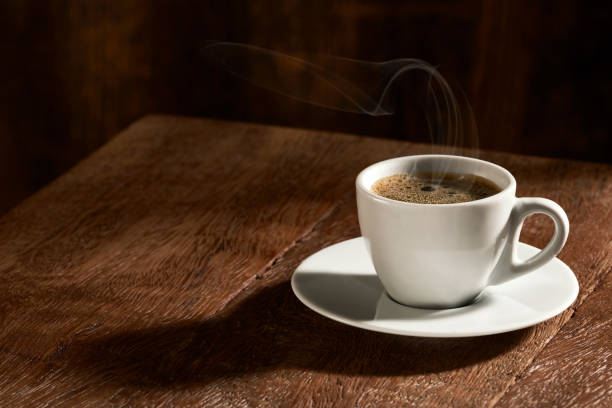There is a certain kind of evening when the world feels like it has folded in on itself. The street outside is quiet, the neighbors have retreated behind their curtains, and the clock seems to stretch each second a little longer than usual. On one of those evenings, instead of rushing through my chores like I usually do, I decided to turn the dishes into something else—something more than just scraping plates and clinking glasses. I made it into a ritual.
The experiment started with music. I put on a playlist I hadn’t listened to in years, a strange mix of songs that once lived in my college dorm room, tucked between exams and late-night conversations. The first notes filled the kitchen, soft and familiar, and suddenly the pile of dirty bowls didn’t look like an enemy anymore. It looked like an invitation.
There’s a rhythm to washing dishes that I’d never paid attention to before. The circular motion of the sponge, the swish of water over porcelain, the clatter as a fork joins the drying rack. It reminded me of a dance I hadn’t practiced in ages—slow, repetitive, but full of texture. Usually, I try to get it done as quickly as possible, rushing so I can sit back down and scroll or distract myself. But that night, I lingered.
The bubbles rose higher than necessary because I added too much soap, but I didn’t mind. I watched them shimmer in the dim light, tiny floating planets popping one by one. There’s something humbling about realizing that even in the most mundane corner of the house, the universe still sneaks in—tiny rainbows bending themselves across fragile skins of water. My playlist hummed in the background, and I found myself swaying a little, shoulder to shoulder with the music.
As I moved through the dishes, I thought about how often I treat life like a checklist. Clean, done. Cook, done. Work, done. Sleep, done. But slowing down made the task feel less like a burden and more like a meditation. Each plate I washed held the ghost of a meal, and each meal held the ghost of a moment. A bowl still smelled faintly of garlic and olive oil. A cup had the faint brown rim of morning coffee. Washing them away wasn’t just cleaning—it was closing chapters, tiny ones, but chapters nonetheless.
There was a cup with a chip on the edge that I never notice until I wash it by hand. I’ve had it for years, and every time my fingers graze the sharp little crack, I think about how fragile things can survive if you’re gentle enough. It’s not safe for guests, but it stays with me, a private reminder that imperfection doesn’t erase usefulness. If anything, it adds a layer of tenderness to the act of holding it.
I lost track of time that evening. The playlist stretched into the second half, and the sink gradually emptied, but instead of relief, I felt a strange longing. The dishes had given me something I didn’t know I was missing: the quiet proof that presence doesn’t need to be spectacular. It doesn’t need to be a vacation, or a grand project, or even an outing with friends. Sometimes presence is just warm water, steady music, and your own two hands doing something simple without rushing.
At some point, I turned off the overhead light and left only the small lamp by the counter. The glow softened the edges of the room, and suddenly the kitchen didn’t feel like a space for chores anymore. It felt like a cocoon. The steam rose lazily, fogging the window above the sink, and for a moment I imagined someone walking by outside, wondering who was awake inside this glowing box. They would have no idea that the person at the sink wasn’t just cleaning up but finding a rhythm in ordinary tasks.
When the last glass was set on the rack, I didn’t feel the usual satisfaction of finishing. Instead, I felt a kind of grounded stillness, as if I had anchored myself to the present moment without even trying. I lingered by the sink longer than I needed to, letting the last song on the playlist fade into silence. The room smelled faintly of lemon soap, and the counter sparkled in a way that didn’t just reflect cleanliness but patience.
The dishes were never just dishes that night. They were a reminder that slowing down doesn’t have to be dramatic. It doesn’t mean abandoning the world or escaping to a mountain retreat. Sometimes it’s just letting yourself stretch out time in the middle of something repetitive. Choosing not to rush, not to push, but to notice. To let the bubbles rise too high, to let the chipped mug feel like an old friend, to let the music carry you into the rhythm of hands, water, and porcelain.
Ever since that evening, I’ve found myself oddly excited when the sink fills up. Not always, of course—I’m still human, still impatient, still prone to sighing at the mountain of plates after a long day. But sometimes, when the timing feels right and the house is quiet, I’ll turn down the lights, press play on a familiar playlist, and let the dishes take me somewhere slower. Somewhere where time feels less like a race and more like a song I can hum along to.
And maybe that’s the real art of it—not the cleaning, but the choosing. Choosing to take the ordinary and let it stretch into something tender. Choosing to let soap and water become music. Choosing to stand in your own kitchen and realize that even here, especially here, there is space for stillness.


